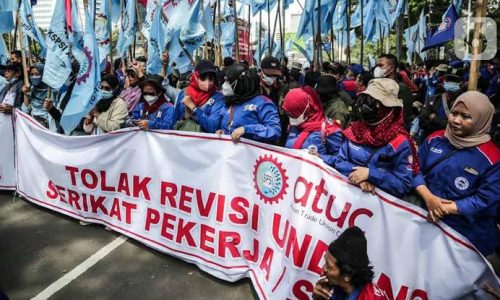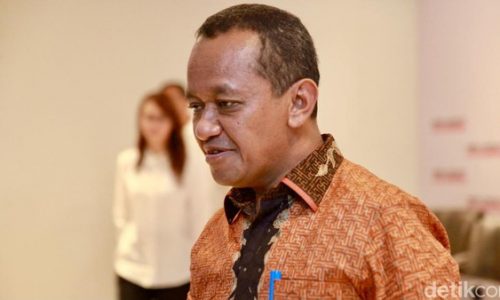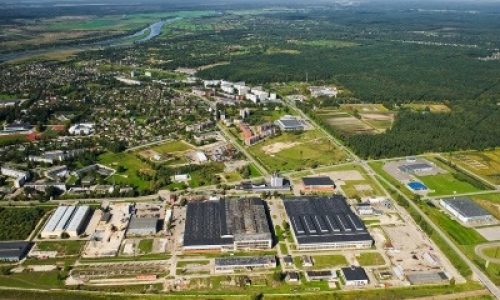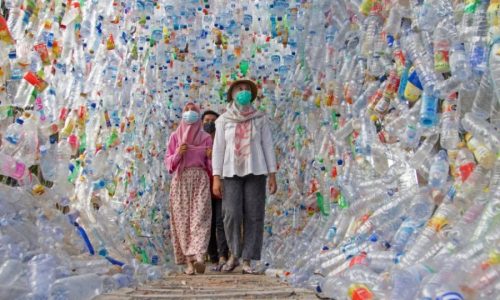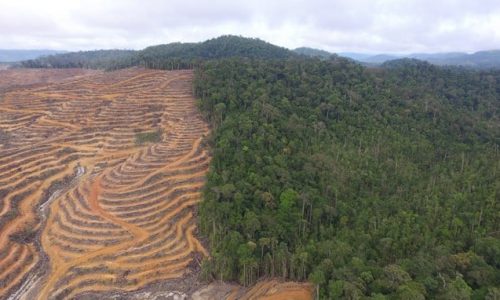The government has planned to issue a roadmap and a regulation to fully ban the export of several minerals ores like coppers, tins and bauxite next month. Minister of Investment/Head of Investment Coordinating Board (BKPM) Bahlil Lahadalia said the government was discussing the regulation on the downstream industry system and the economic tree of the downstream industry of minerals.
“We will deliver it [the regulation] in November,” he said on October 24, 2022.
As a result of Law No. 3 /2022, all raw minerals exports should be halted by June 2023 at the latest. However, Indonesia began to impose early ban on the export of nickel ores since January 1, 2020.
Read also: Indonesia’s downstream mineral industry ambitions still have a long way to go
The Ministry of Energy and Mineral Resources (ESDM)’s Director General of Coal and Minerals Ridwan Djamaludin said the government has firstly arranged a roadmap on developing the downstream industry for copper, tins and bauxite. Later on, the government would increase the copper reserve resilience and the optimization of ore production. To reach this target, the government will intensify copper exploration activities, convert the resource into reserves and relax the limited exports to increase state revenues.
Secondly, the government will improve and optimize the processing and purification industry by speeding up the construction of copper, tins and bauxite processing and refining plants. It will also issue policies that supports the development of the said industry.
Thirdly, the government will develop fabrication, manufacturing and local content of the industry by mapping copper, tins and bauxite industry fabrication, developing copper, tins and bauxite derivative industry as well as protect copper derivative industry.
Lastly, the government would optimize domestic product use and launch the recycling system.
Lessons learned from nickels
Lahadalia said Indonesia would encourage investment in technology-based downstream industry for future investment policy. He said miners had protested him for around six weeks on the export ban of nickel ores policy.
The government issued a decree to fully ban nickel ores export in early 2020. In a meeting attended also by miners and smelter owners, they agreed on the policy. Lahadalia said that he already requested smelters owners to buy all nickels ores produced by the miners in fair prices.
The minister argued that the export ban policy increased the value of nickel export in 2022 to an estimate of between US$ 27 billion and US$ 30 billion. The development of nickel downstream industry helped nickel export to increase to US$ 20.9 billions. Previously, in 2017-2018, Indonesia nickel export worth only US$ 4 billions.
Lahadalia explained that Indonesia needed to develop the downstream nickel industry into battery for electric vehicles (EV). President Joko “Jokowi” Widodo signed Presidential Instruction (Inpres) No. 7/2022 on the use of Battery-based Electric Motorized Vehicles as government operational service vehicles. The president aims at replacing the government’s operational vehicles from fossil fuel to electricity within five years.
Other potential overseas buyers are European countries and the United States as both continents would switch 70% of their transportation system to electric by 2030.
“God loves Indonesia as we have 25% of the world nickel reserves,” he said. “The raw materials for EV battery are made from nickel, manganese, lithium and cobalt. Indonesia have all except lithium. We want Indonesia be the biggest producer of EV battery in the future.”
Read also: Rosy picture in nickel mines but at what costs?
Indonesia has cooperated with several big players in electric cars and battery industries including LG Corporation from Korea with US$ 8.9 billion in investment. LG established joint ventures with Indonesia state owned enterprises from mining, smelters, precursore, chatodes and electric battery. Meanwhile, Hyundai Motor Company, also from Korea, has worked with state owned enterprises to also develop electric cars and battery in Karawang, West Java. The first 10 GW of the battery will be produced in 2023 and the battery cells will be produced in 2024.
Beside the two Korean companies, Indonesia also cooperates with Chinese company CATL for IDR 70 trillion investment, BASF and VW from Germany and Foxcon from Taiwan. “The development of downstream industry is the key to increase value added,” Lahadalia said.
Resistance from G20 nations
In the G20 investment ministerial meetings, Lahadalia said some ministers had rejected the agreement on the development of downstream industry. He explained that the developed countries have implemented a protective downstream industry to boost their economy.
“For example, the United Kingdom banned wool raw materials exports in the 16th century. The US also imposed high import tax in the 19th and 20th centuries. China uses provision on local content for 90% and Ireland in 1986 set a maximum 20% of foreign shares,” he said.
He argued that Indonesia only followed the same trails but received strong opposition.
“They want to bring us to the WTO. I told them in the past you are developing nations, you ban the exports of your raw materials and become advance nations. Now it is our turn and you get angry. We are not a subordinate states of yours,” he emphasized.
At the end of the day, Lahadalia said that G20 investment ministers have agreed on the development of downstream industry.




